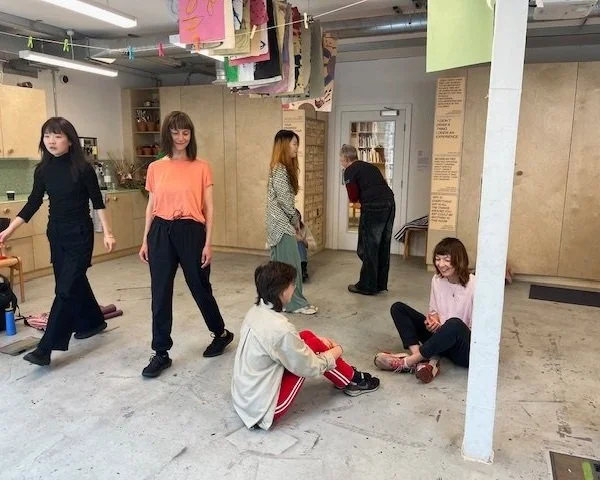Between Militant Demand and Creative Refusal: Moments of the Wages for Housework Campaign
This event is held in solidarity with Goldsmiths for Palestine’s occupation of Goldsmiths CCA https://www.instagram.com/goldsmithsforpalestine/?hl=en
Wages for Housework was launched in Padua by the International Feminist Collective in 1972. Led by feminist activists such as Mariarosa Dalla Costa, Selma James, Leopoldina Fortunati, Silvia Federici and Brigitte Galtier, the campaign was prominent throughout Europe and North America. Within the framework of Marxist feminism, it aimed to highlight how capitalism exploited and profited from reproductive labour, extracting value from the ‘social factory’ of the home and communities. The demand to compensate women’s work in the kitchens and bedrooms by regenerating the male workforce through a hot meal, a comfortable home, washed and ironed clothes, and the satisfaction of sexual needs through a wage paid by the state provoked varied reactions of defence and scepticism within feminist circles in the 1970s. This historical campaign continues to inform and inspire contemporary feminist movements. We invite you to join us in exploring its legacy and relevance today.
Barbara Mahlknecht and Leopoldina Fortunati will introduce the Wages for Housework campaign by tracing selected historical moments and utilizing archival materials. Together, we will examine and investigate various militant materials from the era—folders, flyers, and pamphlets—to ignite a discussion on the strategies, tactics, and tools militant feminists employed to spark a broader feminist movement for wages for housework.
Unlike factory workers, who could organize quickly due to their shared production location, women in the 1970s were isolated at home. How did militants organize a movement addressing unwaged labour in the domestic sphere? What were the challenges and contradictions of demanding remuneration for women’s invisible labour—such as child-rearing, cooking, cleaning, washing, and sex—while advocating for its refusal? What were the conceptual ambivalences and practical challenges of launching a movement with limited financial resources and time?
As we explore these materials, participants will be invited to delve into the topics and methods addressed by the Campaign in smaller groups. In addition to sharing their findings, we will read excerpts from selected pamphlets, including passages from Leopoldina Fortunati’s The Arcane of Reproduction: Housework, Prostitution, Labor and Capital (1981; trans 1995) to stimulate conversations about the significance of social reproduction in contemporary daily life.
This gathering offers an opportunity to collectively re-examine the relevance and significance of past feminist struggles on social reproduction. We aim to create a temporary communal space to investigate daily routines and stories fostering an intersectional perspective on social reproduction today.
Bios
Leopoldina Fortunati is a feminist Marxist, activist and theorist. She is the author of The Arcane of Reproduction: Housework, Prostitution, Labor and Capital, 1995 [1981]. She was active in the student movement in 1968, then in Potere Operaio and finally in Lotta Femminista (Women’s Struggle). With Mariarosa Dalla Costa, she published Brutto ciao. Direzioni di marcia delle donne negli ultimi 30 anni (Brutto ciao. Women's marching directions over the last 30 years), 1977; with Silvia Federici Il Grande Calibano. Storia del corpo sociale ribelle nella prima fase del capitale (The Great Caliban. History of the Rebellious Social Body in the First Phase of Capital), 1984, as well as several articles on the machinisation of the sphere of reproduction. Leopoldina Fortunati is Senior Professor of Sociology of Communications and Culture in the Department of Mathematical, Computer and Physical Sciences at the University of Udine in Italy, where she founded and directs the “NuMe” new media research laboratory. She is an ICA Fellow.
Barbara Mahlknecht is a researcher, curator, lecturer, and art mediator. Most recently, she served as a Senior Scientist at the Academy of Fine Arts Vienna (2020-2022) and as a supervisor and tutor at the Piet Zwart Institute/Willem de Kooning Academy Rotterdam (2017-2019). Her recent independent curatorial projects include Mothering Communities (University of Applied Arts, Vienna, 2023), The Struggle is Not Over (Museum of the 20th Century, Mestre, 2023), and How to Change Everything: The Politics of the Feminist Strike, Radical Care, and Artivism (FLUCC, Vienna, 2022). As an associate curator and editor, she co-organized the exhibition and publication of Raqs Media Collective's Hungry for Time at the Academy of Fine Arts Vienna. Her interest in the intersections of social inequality, care labour, social reproduction, and (curatorial) practice in the archive and feminist militancy is driven by her current research on the Wages for Housework Campaign in 1970s Italy. She is a Ph.D. candidate at Goldsmiths, University of London (AHRC Fellowship).
Access information here
As this event is likely to be extremely well-attended, and we have limited capacity in the space, we ask that you only book a place if you definitely plan to attend. In the event that you are unable to make it on the day, please go to the TicketTailor booking and cancel your place.
This event is part of the series of events Reviving Feminist Struggles, Growing New Worlds curated and organised by Barbara Mahlknecht in collaboration with the Feminist Duration Reading Group, MayDayRooms London, and the Women’s Art Library at Goldsmiths University, June 13-16, 2024. With the fdrg it is part of the Feminist Duration series which explores under-known texts, ideas, and movements associated with earlier periods of feminist activity in the UK. The programme juxtaposes earlier moments of feminist with current urgencies and struggles. By restoring material texture to overlooked political and cultural movements, it seeks to resist versions of the past that reduce feminist struggle to one-dimensional stereotypes. Looking to the past to activate its nascent potential, the programme aims to identify tools that can inspire and enrich further collective action, promoting the intergenerational exchange of knowledge and experience. While honouring earlier feminisms, the series also highlights how collaboration, difference, and dissent have characterised previous feminist movements, and how feminists have both negotiated, and failed to significantly attend to, differences between themselves.
Image Credit: Between Militant Demand & Creative Refusal_fdrg led by Barbara Mahlknecht with Leopoldina Fortunati_Feminist Library_16 June 2024, Photo: Helena Reckitt
Feminist Duration is generously supported by the CHASE Doctoral Training Partnership.



